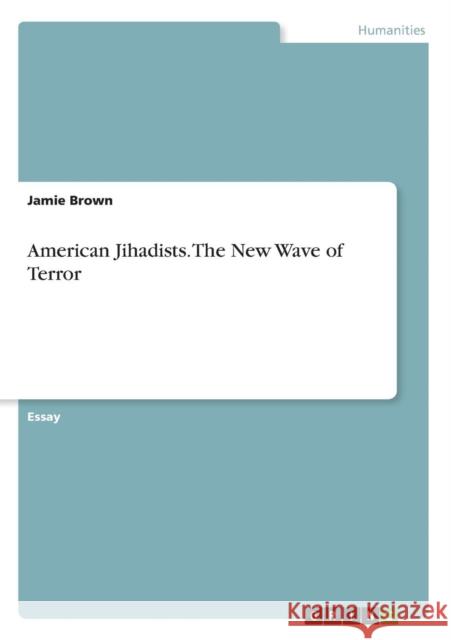American Jihadists. The New Wave of Terror » książka
American Jihadists. The New Wave of Terror
ISBN-13: 9783656871101 / Angielski / Miękka / 2015 / 24 str.
Essay from the year 2014 in the subject Sociology - War and Peace, Military, grade: 100.00, Fairleigh Dickinson University, Metropolitan Campus, course: Assessing Internal and External Threats, language: English, abstract: The events of September 11, 2001 changed the way the United States viewed terrorism forever. In a matter of hours, al Qaeda transformed from a foreign and incapable threat to a force to be reckoned with. This group had succeeded where many others had failed: bringing terror to our homeland. Unfortunately, 9/11 was not an isolated event. Since then, there have been numerous groups aspiring to invade the US and bring terrorism to American soil. Al Qaeda was but an example of how a network of seemingly primitive individuals can quickly become organized and sophisticated. Despite being viewed as unbelievably ruthless and violent, dealing with al Qaeda did nothing to prepare the US and the rest of the world for the rise of what has become arguably the most bloodthirsty terrorist organization to date-the Islamic State (ISIS). Despite their continuous atrocities, they have successfully increased their numbers to over 31,000. One would immediately wonder who these individuals are that seek to join a group of bloodthirsty terrorists, however, the answer to that question is even more shocking than the question itself. Of the estimated 31,000 members roughly 15,000 are foreign born-some of which are from Western nations. It is difficult to believe that so many Westerners would be willing to commit whole-heartedly to this life of violence against their own people, however, former terrorists indicate that once recruited, any semblance of morality is often replaced with a sense of duty to further the terrorist movement. Due to the potential consequences of American membership in groups like ISIS, it is imperative to determine what causes these individuals to abandon all allegiance to their home nations and carryout attacks against their fellow countryme











